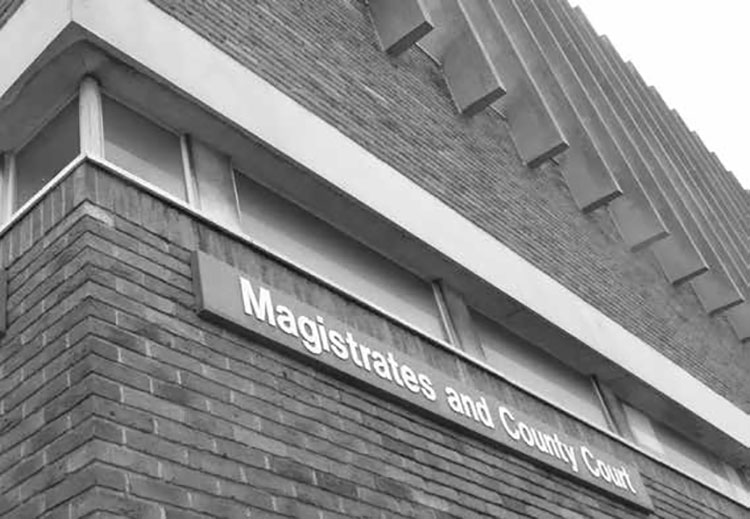There was an overwhelming desire at Respond to ensure that as much support as possible – whether by continuing therapy, emotional support or advocacy – could be offered when the country went into lockdown.
Respond supports people with learning disabilities who have experienced violence abuse or trauma. What difficulties were they facing in their lives because of the pandemic?
Of course, there were concerns around providing support. How would clients feel about going online and not meeting in person? What issues would they face in the transition to more digital ways of supporting and communicating?
What new skills were needed by therapists and advocates? What new software could be used or would be required?
For most of us working at Respond, it felt overwhelming – so it was certainly the same for the clients.
We found ourselves learning how to make the most of Zoom, Teams and WhatsApp and feeling very out of our comfort zone. We certainly felt concern for our clients, thinking they too would find it all very difficult.
And then something quite amazing happened. People adapted and carried on, found they could learn new skills and learned to communicate in different ways.
We feel a little nostalgic in a strange way when we think about it, as it sort of brought people together, levelling the playing field. One autistic client, who is usually very isolated, said she felt part of life more than ever as everyone was isolating.
More funding became available for short-term support and work for victims of domestic and sexual violence. Respond was fortunate enough to be able to then offer online therapy sessions for individuals and in groups.
One autistic client, who is usually very isolated, said she felt part of life more than ever as everyone was isolating
The advocacy team, especially through lockdown, supported people across the UK. This centred around many issues – trafficking, family courts, domestic violence and sexual exploitation as well as recent and past harms.
The number of people who rang Respond about problems with hate crime, issues with neighbours and concerns for family members was notable.

Support includes managing expectations, for example when a client sees an abuser receiving an inadequate prison sentence.

Therapy at Respond allows people to express their deepest fears without being judged.
Standard problems, worse outcomes
It remains clear to the staff team at Respond that people with autism or a learning disability experience all of the harms that others do but seemingly more frequently.
They are targeted by unscrupulous and abusive people as they are less likely to report, less likely to be believed, more likely to be ignored or the crime underplayed and are less likely to have access to justice.
The belief that autistic people and people with learning disabilities do not make credible witnesses is all too pervasive.
What is left for them to experience? Healing and a journey away from the harm and injury they have endured. How can this occur successfully?
Respond’s advocacy team advises and supports and acts as independent advocates: this can mean acting as an advocate around capacity, human and equality rights and justice while also focusing on solutions to practical issues.
It is essential to be clear about what can be done and what the work will involve, which may include advising when a different advocate or a solicitor from outside is required, as well as being open about what is not possible.
A lot of the work is around containing expectations and being with a person through a journey that is unfortunately likely to be a disappointment – particularly where justice is concerned.
Support and advocacy
There are similarities between emotional support/therapy and advocacy in terms of containment (making someone feel safe and not out of control) but those similarities end with the content and direction (helping people to focus and think about what they want to do safely in therapy) of the support offered.
Containment and safety for clients who access advocacy is based around expectations of results and the concept that positive results will mean justice.
A perfect example of this is a client seeing the person who hurt her receiving an inadequate prison sentence – although most cases do not even go to court.
Given this, it is essential to do some work on expectations, what could happen and how the person will manage this.
Therapy provides an opportunity to acknowledge and name the emotions the client is feeling in ways that make sense to her, and about the expectations that are being reached. This includes naming disappointment and injustice, and having those feelings recognised and validated – and perhaps experiencing for the first time that they are believed.
The therapeutic space gives the client the opportunity to build a trusting, meaningful relationship, where they are in the presence of an unerring ally. Here, the unspeakable truth about how they are feeling, especially in the face of constant injustice, can be named with no fear of judgement or spiteful retribution.
Adding therapy to advocacy
The recent opportunities for Respond advocacy clients to receive therapy as a parallel service with advocacy have been positively received and well used.
The therapeutic space gives the client the opportunity to process her feelings and have them validated and, in so doing, she can clear the processing space that she needs for the advocacy work.
Having a therapeutic space to process feelings stirred up by the legal processes she might be involved in or is considering means the client can express her deepest fears or process her understanding, knowing she will not be judged.
In addition, therapy has invariably given clients the space and time to think about previous traumas in their life, and to somehow find a way of being able to understand them and give them their rightful space.
To be seen, heard and believed is something these clients have rarely experienced. To be able to process some feelings and situations that could feel overwhelming at times has supported their journey through the judicial system’s processes.
As perpetrators and abusers in these cases are seldom brought to justice, it is not unusual for the victims to carry the shame of a crime that is not their own but is left with them as a result of this broken system.
By facing this shame in therapy, the client can recognise her own worth by putting down those feelings that she is carrying for others and move with greater self-worth and own her identity as a survivor.
Sounds easy, no? It’s not. And it might be worth trying to imagine what this might be like if the life you have experienced thus far has reinforced that you are of no value, and certainly are not worth having the resources spent on you to try to get the justice you rightly deserve.
Collaborative work between advocacy and counselling/therapy services is not a new concept. Its success has been seen before but perhaps not as frequently as people might imagine.
When we were forced into lockdown and were required to think creatively to ensure services could be delivered, suddenly everything was to play for, and this proved to be significant for autistic clients and those with learning disabilities.
Due to the extraordinary situation, there was now a smooth transition with a pathway that gave fair access to individual or group therapy
Reaching more people
Due to the extraordinary situation and the funding Respond was able to access because of Covid-19, there was now a smooth transition, with an efficient internal referral pathway that gave fair access to short-term individual or group therapy.
The funding was offered in response to the call to support people’s mental health and wellbeing as difficulties were being exacerbated by lockdown.
It had been clear for a long time that the need for this joined-up provision was needed, The clients felt more “held” and better contained, as they had access to support via a one-stop shop.
As services were online, the reach grew, so clients from across the country could access services that have historically been delivered in London and, more recently, Birmingham.
The therapy spaces gave people the opportunity to talk about how their past and unprocessed traumas were coming back to the foreground of their lives. For some, the issues lay with the pressure of being in confined spaces with violent partners or family members who were unable to understand or manage the difficulties of lockdown themselves.
It is said that “necessity is the mother of invention” – and, because of the needs that were highlighted by the pandemic, it became evident that the commissioning of joined-up services must hold the needs of the client at their very heart.
Perhaps the big message is that therapeutically held services (which consider motivations, responses and other traumas that may affect a person and their networks) are needed to support the process of ensuring justice is available to everyone, not just the privileged few.
Lynne Tooze is the independent sexual violence adviser and Sonia Antoniazzi is a senior therapist at Respond
